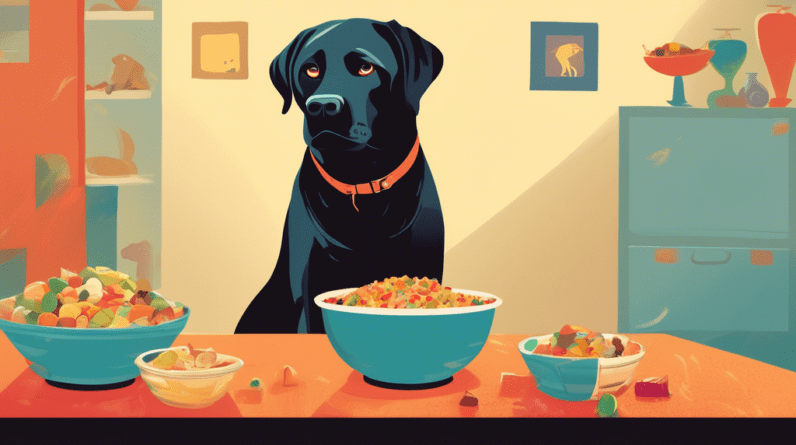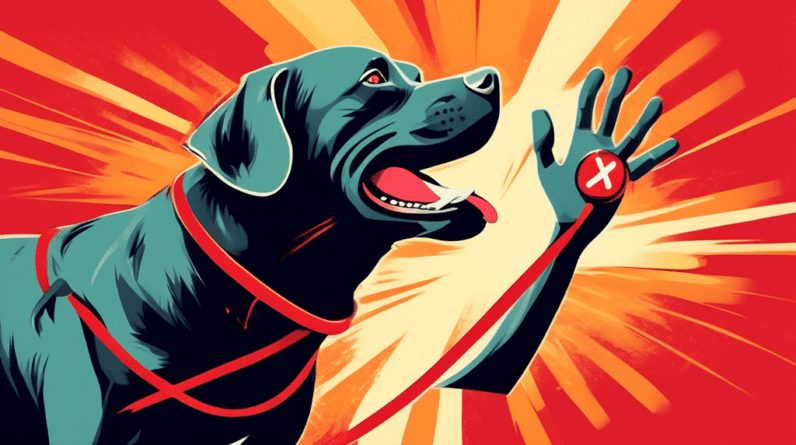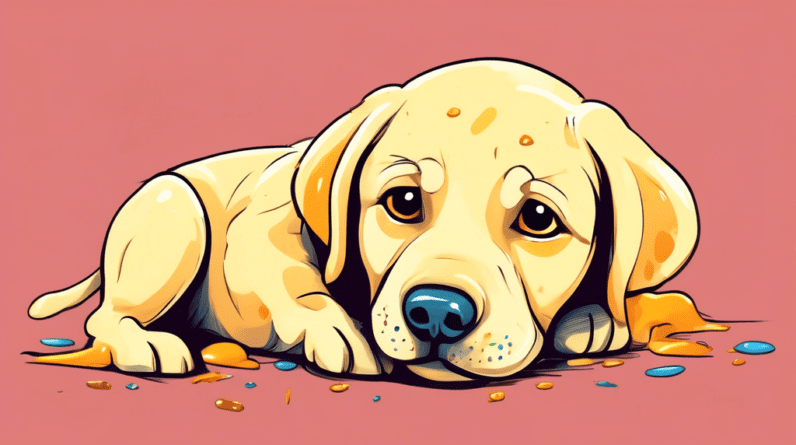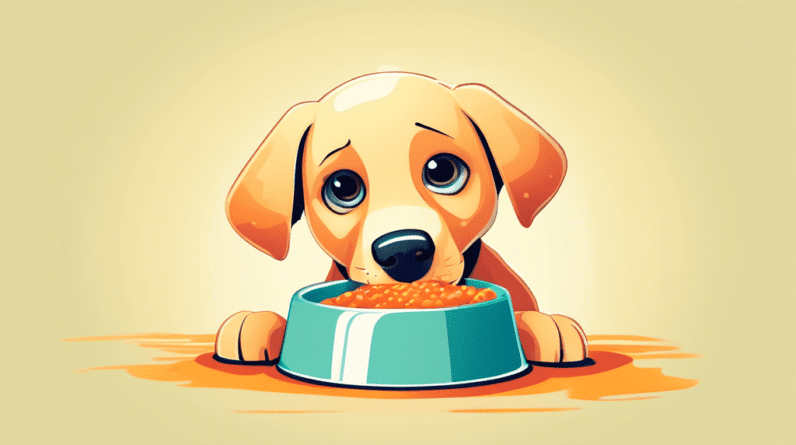
Why Do Labradors Love to Eat So Much?
Labrador Retrievers are renowned for their friendly nature, intelligence, and – you guessed it – their hearty appetites. If you’ve ever shared your life with a Lab, you know that the phrase bottomless pit might as well be tattooed on their forehead (we wouldn’t recommend that, by the way). But why do Labradors seem to have an insatiable desire for food? Let’s delve into the fascinating world of Labrador appetites and understand their dietary needs.
A Breed Built for Hard Work (and Eating!)
To understand your Labrador’s seemingly endless hunger, we need to travel back in time. Labradors, as their name suggests, hail from the rugged coast of Newfoundland, Canada. Originally known as St. John’s Water Dogs, these dogs were bred as sturdy working companions to fishermen.
Their days were long and physically demanding. They hauled fishing nets, retrieved fish from icy waters, and even acted as couriers, carrying messages between boats and shore. This active lifestyle required a robust physique and a diet to match.
The Genetics of Gluttony
Centuries of selective breeding for stamina and work ethic have left their mark on the Labrador’s genetic makeup. But here’s the intriguing part: recent research suggests that Labs may possess a genetic variation that intensifies their food motivation.
Studies have identified a specific gene variant, known as POMC, that’s more prevalent in Labrador Retrievers (especially the chocolate variety) than in other breeds. This gene plays a role in regulating feelings of satiety – the signal that tells our brains we’re full. It’s believed that this variation might interfere with the brain’s ability to recognize when the stomach is full, leading to, well, a constantly hungry Labrador!
The Role of Exercise and Energy Expenditure
It’s no secret that exercise and activity levels directly impact a dog’s caloric needs. Just like a marathon runner needs more fuel than someone with a sedentary lifestyle, an active Labrador will have higher energy requirements than a couch-potato canine.
If your Labrador is constantly on the go – participating in vigorous play, swimming, hiking, or engaging in other physically demanding activities – their increased food intake might simply be a reflection of their active lifestyle. They’re burning calories and need to replenish their energy stores.
Beyond Genetics: Other Factors Influencing Labrador Appetite
While genetics and activity level play a significant role, other factors can also influence your Labrador’s seemingly endless hunger:
1. Age and Life Stage
Puppies, especially those in their rapid growth phases, have different nutritional needs than adult or senior dogs. They require a higher calorie intake to support their developing bones, muscles, and organs. Similarly, pregnant or nursing mothers will also have increased energy demands.
2. Underlying Medical Conditions
While a healthy appetite is generally a good sign in dogs, sudden or extreme changes in eating habits can sometimes indicate an underlying medical condition. Some medical conditions that can lead to increased appetite include:
- Hyperthyroidism
- Diabetes
- Intestinal Parasites
- Cushing’s Disease
If you notice any drastic changes in your Labrador’s eating behavior, along with other symptoms like weight loss, increased thirst, or changes in energy levels, it’s crucial to consult your veterinarian to rule out any potential health issues.
3. Boredom or Anxiety
Dogs are social creatures who thrive on companionship and mental stimulation. If a Labrador is left alone for extended periods or doesn’t receive adequate physical and mental exercise, they might turn to food out of boredom or as a way to cope with anxiety. Food can become a source of comfort or entertainment when other needs aren’t being met.
Feeding Your Food-Motivated Friend: Dietary Recommendations
Now that we understand the factors contributing to a Labrador’s hearty appetite, let’s discuss how to ensure they’re receiving a healthy, balanced diet:
1. Choose a High-Quality Dog Food
Select a premium dog food formulated for Labradors or large-breed dogs. Look for options with high-quality protein sources as the first few ingredients, balanced with carbohydrates, fats, vitamins, and minerals. Consult your veterinarian to determine the appropriate calorie density for your dog’s age, activity level, and overall health.
2. Establish a Consistent Feeding Schedule
Free-feeding (leaving food out all the time) can contribute to overeating, especially in food-motivated breeds like Labradors. Instead, establish a consistent feeding schedule with two meals per day for adult dogs and up to four smaller meals for puppies. This helps regulate their intake and prevents them from grazing throughout the day.
3. Measure Food Portions Accurately
Don’t rely on the eyeballing method when measuring food portions. Use a measuring cup specifically designed for dog food to ensure you’re providing the correct amount based on your dog’s ideal weight and the feeding guidelines on the food packaging.
4. Monitor Treats and Chews
Treats can be a valuable tool for training and rewarding your Labrador, but they should be given in moderation. Factor treats into their daily caloric intake to avoid overfeeding. Opt for low-calorie, healthy treats or consider using a portion of their regular kibble for training rewards.
5. Don’t Give In to Begging
We know – those pleading eyes can be hard to resist! But giving in to begging only reinforces the behavior and can contribute to overfeeding. Keep mealtimes consistent and avoid feeding your Labrador from the table.
6. Provide Plenty of Exercise and Enrichment
A tired dog is a well-behaved dog (and often, a less hungry one!). Ensure your Labrador receives plenty of physical exercise through daily walks, runs, playtime, or other activities they enjoy. Mental enrichment is equally important. Provide puzzle toys, engage in training sessions, or consider dog sports like agility or obedience to keep their minds stimulated.
Conclusion: A Happy, Healthy Labrador is a Well-Fed Labrador
Labradors have earned their reputation as enthusiastic eaters. While genetics play a part in their love of food, understanding their dietary needs, providing a balanced diet, and ensuring they lead an active lifestyle are crucial for maintaining a healthy weight and overall well-being. By following these guidelines and working closely with your veterinarian, you can help your Labrador enjoy a long, healthy life – with a little less begging at the dinner table!






